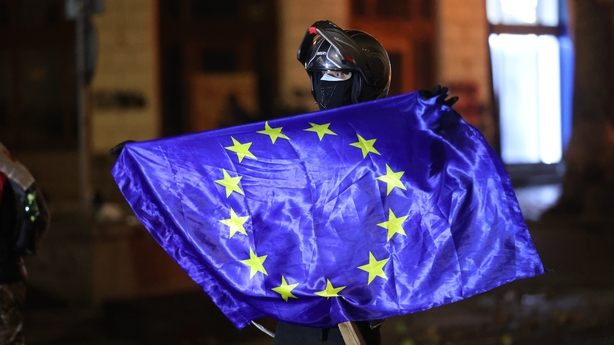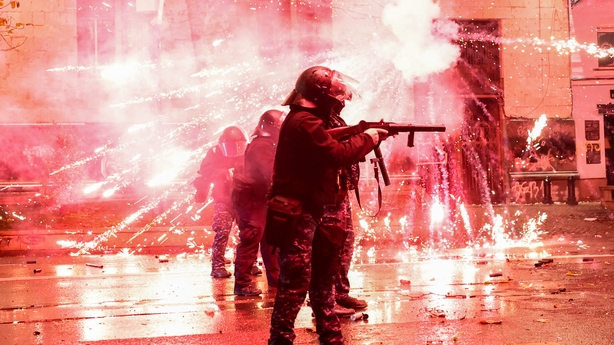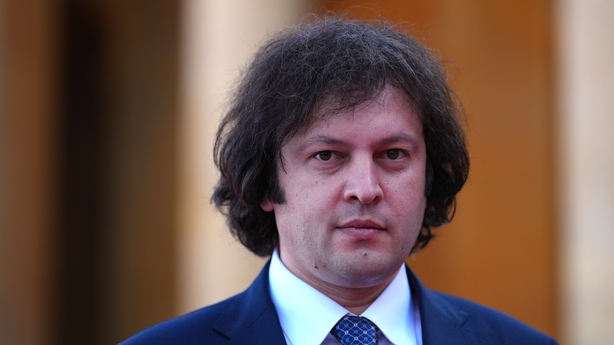Georgia's Prime Minister Irakli Kobakhidze has claimed victory in what he called a "battle" against the country's pro-Western opposition, who he accused of promoting "liberal fascism".
The country has been engulfed in turmoil since the governing Georgian Dream party declared that it had won a disputed election in October.
Tens of thousands of people had already been taking to the streets of the capital, Tiblisi, to protest against the alleged electoral fraud.
Protests stepped up a gear following Mr Kobakhidze's shock announcement last week that his government would not open accession talks with the European Union until 2028.
Georgia's bid for EU membership is enshrined in the constitution and supported by around 80% of the population.
The party has been in power for over a decade, and has been accused of promoting authoritarianism and of enabling greater Russian involvement in the country's affairs.

Police have arrested protestors and deployed tear gas and water cannons.
But with fewer attending the protests over the last two nights, and no clashes with riot police, Mr Kobakhidze hailed his security forces for "successfully neutralising the protesters' capacity for violence".
"We have won an important battle against liberal fascism in our country," he told a news conference, using the same language as the Kremlin to describe political opponents.
"But the fight is not over. Liberal fascism in Georgia must be defeated entirely, and work towards this goal will continue," Mr Kobakhidze added.
He also repeated his earlier threat to "complete the process of neutralising the radical opposition".

With protestors set to take to streets later for a ninth consecutive night and both sides ruling out a compromise, there is no clear route out of the crisis.
Masked police raided several opposition party offices and arrested opposition leaders earlier this week, while around 300 people have been detained at rallies.
The turmoil is expected to further escalate on 14 December, when Georgian Dream lawmakers are set to elect a loyalist to replace the pro-Western President Salome Zurabishvili.
Ms Zurabishvili has declared Georgia's newly elected parliament and government to be "illegitimate" and said she will not step down until the parliamentary poll is re-run.
While some pro-EU protestors worried that the movement might be losing steam, most of those who rallied on Thursday night were upbeat.
Ucha, a 42-year-old doctor who gave only his first name, said he had not seen his children in a week, having come to protest every day after work.
"Of course we are a little bit tired," he said. "We need a little rest, and then we will be back again."

Thousands have also staged daily anti-government rallies in the second city of Batumi on the Black Sea coast, and local media have reported protests across the country, including in the western cities of Zugdidi and Kutaisi.
Allegations of torture
Several ambassadors, a deputy foreign minister, and other officials have resigned over the decision to suspend EU accession talks.
Georgia Dream has advanced successive pieces of controversial legislation in recent years, targeting civil society, independent media and LGBT people.
Brussels has warned such policies were incompatible with EU membership, while domestic critics accuse the government of copying Russia's playbook.
The United States is among the Western countries to have denounced the latest crackdown on the protests, and has threatened additional sanctions against the country's leaders.
Rights ombudsman Levan Ioseliani accused the police earlier this week of "torture" against those arrested.
He said 191 detained protesters had reported mistreatment in custody, with 138 showing visible injuries.

